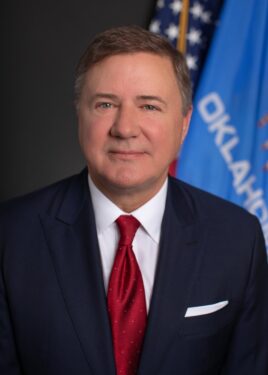
WASHINGTON — Oklahoma’s Supreme Court on June 25 rejected a proposed Catholic charter school that would have been the first publicly funded religious school in the country.
In a 6-2 vote with one recusal, the justices ordered the state to rescind its contract with St. Isidore of Seville Catholic Virtual Charter School, saying the school’s public funding would “create a slippery slope” and violated the state and U.S. constitutions.
“Under Oklahoma law, a charter school is a public school,” wrote Justice James Winchester in the court’s ruling. “As such, a charter school must be nonsectarian. However, St. Isidore will evangelize the Catholic faith as part of its school curriculum while sponsored by the State.”
St. Isidore of Seville Catholic Virtual Charter School was to open this fall, operated by the Archdiocese of Oklahoma City and the Diocese of Tulsa, with religious teaching as part of its curriculum.
A charter contract for the school was approved by a state board last year. Now, this new ruling is expected to be appealed to the U.S. Supreme Court, particularly after recent decisions that have allowed tax dollars to be used for religious schools.
Oklahoma City Archbishop Paul Coakley and Tulsa Bishop David Konderla said in a joint statement on June 25 that the court’s ruling “is very disappointing” and they would “consider all legal options and remain steadfast in our belief that St. Isidore would have and could still be a valuable asset to students, regardless of socioeconomic, race, or faith backgrounds.”
Similarly, Lara Schuler, senior director of Catholic Education for the Archdiocese of Oklahoma City, said she was disappointed with the ruling, saying it “disregards the needs of many families in Oklahoma who only desire a choice in their child’s education.” She also said school supporters “will remain steadfast as we seek to right this wrong.”
Schuler said the interest in the school was reflected in the more than 200 applications the school had received.
On its website, the school says it is no longer accepting applications. A message on the website from Misty Smith, the school principal, says the court ruling was a setback but she will “not give up hope that the court’s error may be corrected.” She said the school board will meet later in the week to discuss next steps and will “get information out to families and faculty soon after.”
While church officials were disappointed with the court’s ruling, Attorney General Gentner Drummond, a Republican, who filed a lawsuit against the proposed school in October, supported it.
In a statement, he said the court’s decision was “a tremendous victory for religious liberty. The framers of the U.S. Constitution and those who drafted Oklahoma’s Constitution clearly understood how best to protect religious freedom — by preventing the State from sponsoring any religion at all.”
“Now Oklahomans can be assured their tax dollars will not fund the teachings of Sharia Law or even Satanism,” he wrote. “While I understand that the Governor and other politicians are disappointed with this outcome, I hope that the people of Oklahoma can rejoice that they will not be compelled to fund radical religious schools that violate their faith.”
The K-12 online public charter school was set to start classes this fall, accepting 500 students. The school, free to students, hoped to increase enrollment to 1,500 students by 2028.
A group of Oklahoma parents, faith leaders, and a public education nonprofit group sued to stop the establishment of the school that had been given state approval. Oklahoma Gov. Kevin Stitt, who has been supportive of the school, said after the ruling that he hoped the U.S. Supreme Court would consider it.
“I’m concerned we’ve sent a troubling message that religious groups are second-class participants in our education system,” Stitt said in a statement. “Charter schools are incredibly popular in Oklahoma — and all we’re saying is: We can’t choose who gets state dollars based on a private entity’s religious status.”
After the state school board approved the application for St. Isidore, Brett Farley, the executive director of the Catholic Conference of Oklahoma, said he was elated. “Parents continue to demand more options for their kids, and we are committed to help provide them,” he said.
Earlier this year he told The Tablet there would be mixed feelings no matter what the school board’s final decision would be, saying: “Folks will be cheering or jeering.”
The school is named after the patron saint of the internet, for essentially creating an encyclopedia in the 600s. The idea for this school was first presented to state officials in 2021 and has been on a rocky road since, with both support and pushback for it.
Farley said the virtual Catholic charter school would “advance religious liberty and educational school choice at the same time” while fulfilling the Catholic Church’s mission to reach out where there are vast needs, especially in rural areas and for students with special needs.
The Oklahoma Catholic Conference thought the time was ripe for this application, he said, particularly after the Supreme Court’s Carson decision in 2022 that said Maine’s exclusion of religious schools from a state tuition program for towns without public high schools violated the free exercise clause.
